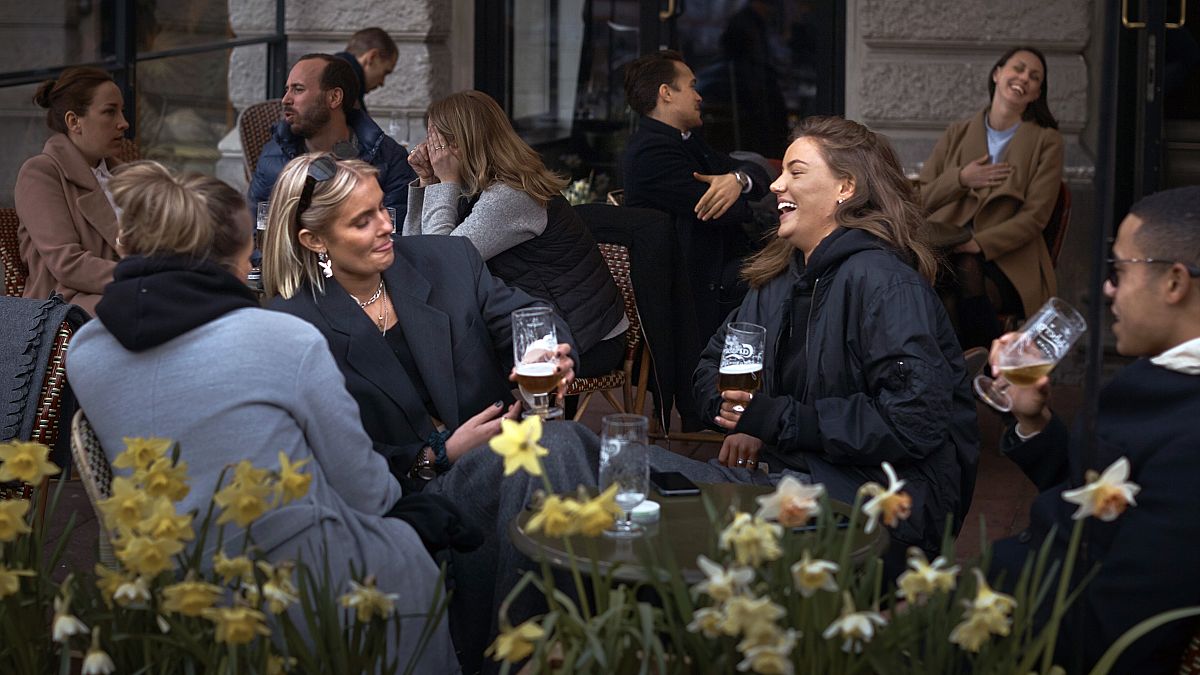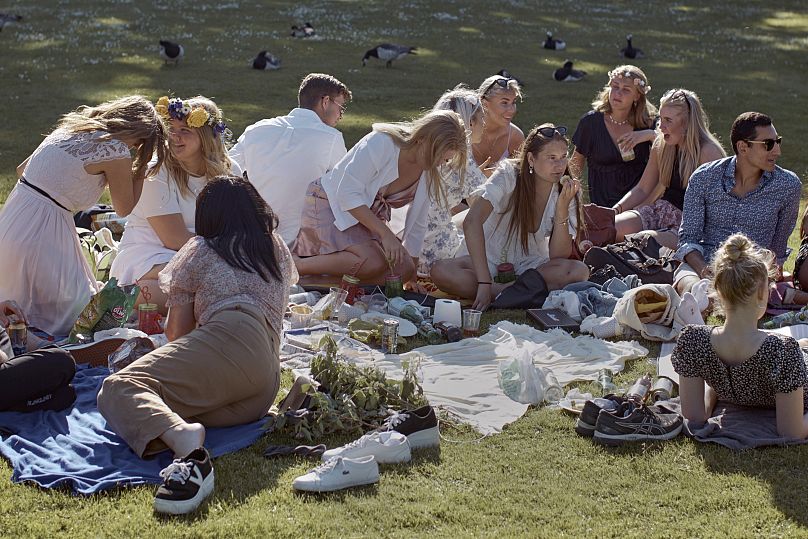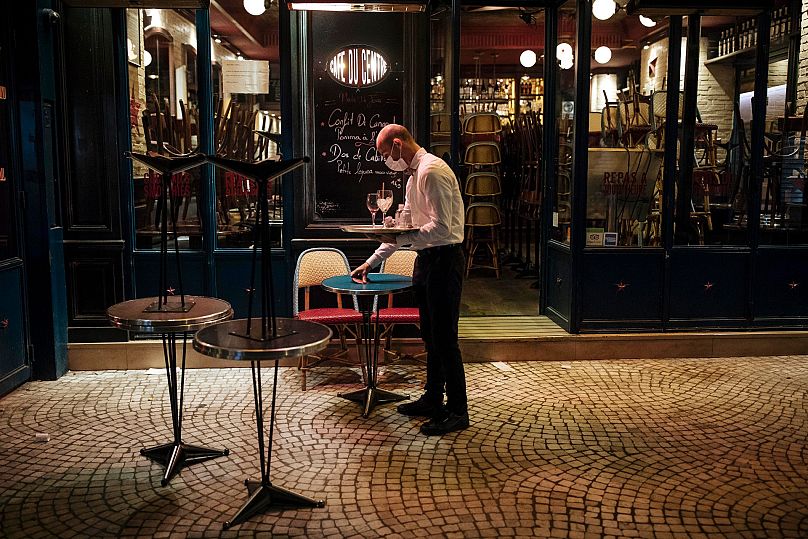Has Sweden's strategy served to protect its citizens from becoming tired of lockdown restrictions, while the thought of another lockdown leaves their European neighbours climbing the walls?
For months on end, Europeans have lived with invasive COVID-19 measures that took away daily freedoms and they are growing weary of the coronavirus and all that it entails, according to the World Health Organisation (WHO).
This "COVID fatigue", which member states have reported is emerging in their populations, poses a problem because it diminishes public support for pandemic response strategies, WHO said.
In turn, this presents a serious threat to efforts to control the spread of the virus.
Sweden’s approach to the pandemic has been inconsistent with much of the world, let alone the rest of Europe — when the likes of France and Italy ordered strict national lockdowns as the virus spread in March, the government in Sweden did no such thing.
Childcare facilities, primary schools, shops and restaurants remained open and Swedes were pictured socialising in cafés and working out in gyms.
But has its strategy served to protect the Swedes from becoming tired of lockdown restrictions, while the thought of another lockdown leaves their European neighbours climbing the walls?
By way of comparison, Euronews spoke to people from France, where strict new measures including curfews have just been reintroduced, and Sweden to see what they made of their country's strategy and if they were experiencing COVID fatigue.
Has Sweden's strategy worked?
Some have held Sweden up as the poster child for using "herd immunity" — when a large portion of a community becomes immune to a disease, making the spread of disease from person to person unlikely combat the coronavirus pandemic — despite Sweden’s ambassador to the UK recently denying this was his country's strategy.
Its hotly debated approach has also split the scientific and medical community in the country; a group of 50 scientists and over 100 other members called Vetenskapsforum COVID-19 (Science Forum COVID-19) have come together to call for tougher measures, arguing too many have died because of the current strategy.
If we look at the country’s cumulative death rate per capita, Sweden's total since the start of the pandemic rivals that of the US, according to European Centre for Disease Prevention and Control (ECDP) data.
The country falls fourteenth in the world in terms of deaths per 100,000 population (excluding minuscule Andorra and San Marino), with Italy, UK, Spain, Belgium the only European countries ranking above it.
And when we consider the most vulnerable, around 7% of Stockholm's 14,000 care home residents lost their lives due to the coronavirus.
What do Swedes have to say?
While many public institutions and commercial premises stayed open, the government in Sweden did introduce some measures at the start of the coronavirus crisis in Europe, back in March.
Authorities limited social gatherings to 50 people and put a stop to nursing home visits.
Surveys and data from mobile phone use have also suggested many Swedes appeared to stay at home on a voluntary basis.
Anamaria Dutceac Segesten, a senior lecturer in European Studies at Lunds University, identified Sweden's "culture of conformity" as one of the reasons that she doesn't think a strict lockdown was appropriate in her country.
She also told Euronews that people have "high trust in the government" who she thinks was playing the long game when they chose not to completely lock the country down.
"It seemed a reasonable thing, people thought 'I can do that'," she told Euronews. "The health authority wanted to achieve acceptance of 'the new normal' by watering down the restrictions and they have."
Although Dutceac Segesten doesn't think all Swedes have toed the line, saying students follow the rules on campus in university towns but not off-site.
Hans Lindberg, a 72-year-old architect from Mariestad, agrees with this observation on the younger generation, saying people aged 20-26 in Stockholm, especially students, "aren't bothered about" COVID-19 and following social distancing measures.
Despite this, he told Euronews most people were likely to voluntarily socially distance, for example, saying: "We believe what the authorities say and we believe in their restrictions.
"We are used to following instructions from authorities, people are accepting of the situation."
Lindberg doesn't think pandemic fatigue has set in, saying his fellow Swedes would "easily follow restrictions again" now that summer is over.
Max Faxälv, a student and software developer, thinks the Swedish government's approach has meant people have experienced less negative psychological repercussions than those in countries that had strict lockdowns.
He has family in neighbouring Norway, which locked down early, and observes "COVID has really isolated them".
Faxälv says he worries about the "masses of people" working from home and their lack of social contact the longer the pandemic goes on — the Public Health Agency asked employers in and around Stockholm to allow remote working wherever possible.
He agrees that younger people are less likely to observe social distancing at all times, adding that he falls into this category but that "doesn't live with old people".
"The only thing people are getting tired of is talking about the pandemic," he said.
What do the French have to say?
French citizens across the country were placed under a strict lockdown for two months in spring, with authorities enforcing compliance — for a period, people were only allowed out for one hour per day in a 1 km radius of their homes and fines were handed out to those caught breaking the rules.
The country, now in the throes of a second surge of the virus, has once again tightened restrictions, with curfews imposed in Paris and several other large cities.
But are the French growing tired of measures to fight the virus?
Nikky Lorcerie, a florist from Lyon in the east, hasn't observed this among her clientele: "The longer it (the pandemic goes on) the more likely people are to follow the rules."
"We're all sick of it, of COVID, but we don't have a choice. We see more and more people close to us fall ill so we are careful," she told Euronews.
Lea Cailleau, a cross-border worker who lives in the centre of Lyon but works in Switzerland, disagrees, saying French people are less likely to observe protection measures like social distancing half a year into the pandemic.
"People aren't careful. If you look at people at a market, they brush against each other and stick close to people in front of them. It's pretty unpleasant given the situation," she said.
"People are fed up. We've stopped living. Bars and restaurants are closing, there are new rules on when things should close, it's starting to wear the French down."
Cailleau says people's behaviour in Switzerland is much different but that cities are also less densely populated, which makes social distancing easier.
She thinks French people need strict rules to be put in place for them to comply: "The French population is one that seeks revolution, so if rules are put in place, we'll seek to push them, to challenge them. It's a strength of our country but also a big weakness."
As winter approaches, the effectiveness of measures authorities in each country have chosen to impose will but put to the test as their populations face up to the prospect of restrictions for at least several months.
Every weekday at 1900 CEST, Uncovering Europe brings you a European story that goes beyond the headlines. Download the Euronews app to get an alert for this and other breaking news. It's available on Apple and Android devices.




